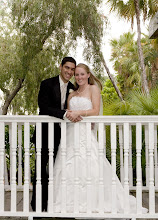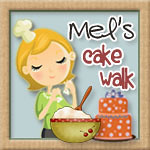 I think the Easter Eggs came out especially cool! They're almost a little psychedelic - but I prefer to call them kaleidoscope eggs!
I think the Easter Eggs came out especially cool! They're almost a little psychedelic - but I prefer to call them kaleidoscope eggs! Want to make some yourself!? They're easy! First, bake your favorite rolled cookie (gingerbread, shortbread, sugar, etc). After the cookies have completely cooled, you're ready to decorate them! Here's the recipe for the royal icing I use (from www.wilton.com):
Want to make some yourself!? They're easy! First, bake your favorite rolled cookie (gingerbread, shortbread, sugar, etc). After the cookies have completely cooled, you're ready to decorate them! Here's the recipe for the royal icing I use (from www.wilton.com):1 lb. sifted confectioner's/powdered sugar
3 tablespoons Meringue Powder (available at craft stores or you can substitute powdered egg whites - see the package for instructions)
5-6 tablespoons lukewarm water.
Mix all ingredients in a mixer at low speed until incorporated. Then mix for 8-10 minutes on medium speed until the icing looses its shine and becomes think and marshmallow-like. This icing will dry out quickly so be sure to store it in an airtight container.
Color your icing with paste food colors (available at craft stores). Don't use the liquid colors you're used to seeing at the grocery store because they will change the consistency of your icing and make it really runny. Once you have the icing the color you want it, put it into a piping bag or zip-top bag and pipe a border around each cookie. For the eggs, I just put one border around the whole cookie. However, for the flower, I put a border around each petal. The border will prevent colors in neighboring sections from mixing so put a border wherever you want to separate colors.
The borders need to dry for a little bit so set the cookies aside while you thin down the rest of your icing. If you do all your cookie borders at one time, you can thin all the remaining icing. I thin my icing by adding 1/2 teaspoon water per 1 1/2 cups icing, but this is a sliding scale so you may need slightly more or less water to get the desired consistency. To test your icing, lift your spoon out of the icing and let it drip from the spoon back into the bowl. If the icing that dripped down blends back into the other icing in about 3 seconds, you have the perfect consistency. If you can distinctly see the icing that dripped for longer than 3 seconds, add more water. If the icing blends immediately, it's too thin so you need to add a little powdered sugar to thicken it again. I know this seems picky, but it will save you a lot of headache later when we move onto the cookies!
Ready for the cookies now? Let's go! Fill a piping bag or zip-top bag with the thinned icing. The idea here is to "flood" the cookie with icing so just squeeze the icing onto the cookie until you can no longer see the cookie underneath. To make the kaleidoscope effect, you can pipe swirls or stripes in different colors. Then, take a toothpick and gently scrape the end across the icing, dragging the colors with you.
For example, I made the white and purple egg by piping two horizontal purple stripes in the egg and filling the rest with white icing. Then I dragged my toothpick tip up and down vertically to create the kaleidoscope effect. On the blue and yellow egg, I piped a swirl in yellow icing and filled the rest with of the egg with blue icing. Then, I dragged my toothpick from the center of the egg to the outside, and back again.
The kaleidoscope eggs are super easy to make and are sure to impress! Good luck!















0 comments:
Post a Comment